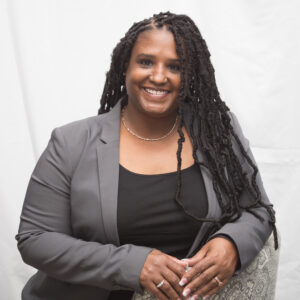
We are proud to share this guest post by Abby Hasberry, LMFT-A, about parenting kids with anxiety disorders, including tips on finding a therapist, navigating school, developing self-advocacy skills, and remembering parent self-care.
Anxiety is one of those feelings that everyone can relate to. We all have had a nervous tummy, sweaty palms, a lump in our throat, or the feeling of our heart beating out of our chest. The DSM-V-TR defines anxiety as an “anticipation of future threat.” Kids define anxiety as “What if they laugh at me?”, “What if no one likes me?”, “What if don’t know anyone there?” Anxiety disorders pair anxiety with excessive fear and a resulting fight, flight, or freeze response.
The first time I noticed that my daughter had an anxiety disorder was in elementary school when she began refusing to order her own food at restaurants. She would whisper her order to me but would not make eye contact nor speak to the server. While most of us experience some form of anxiety on a regular basis, an anxiety disorder disrupts the normal flow and interactions of an individual’s daily life. These disruptions often include school, self-esteem, and family relationships. Societal factors like increased screen time, competitive environments, isolation due to the pandemic, better mental health awareness, and more have led to a rise in diagnosed anxiety disorders in children, adolescents, and young adults.
Parents, like me, are tasked with finding the best therapeutic fit, navigating the child’s academic experience, teaching their child to understand their needs and then advocate for them, and not forgetting to take care of ourselves as people, not only as parents.
Finding a Therapist
I tell all of my clients that finding a therapist who is a good fit for your family is a lot like dating. You may have to go on a few first dates or 15-minute free consultations before you choose someone. And even then, you may have to have a few sessions (at least four) before you know if it is a good fit. In order to help your child do this, come to consultations with a list of questions, and communicate to your child that this relationship should feel comfortable. Think of the therapist as an adult that your child will form a bond with and confide in and who will be your partner in the emotional development of your child. Make sure it is a good fit based on your child’s needs and based on your family’s values and culture.

Navigating School
Expect to have to educate the school about your child’s diagnosis and specific symptoms. Anxiety disorders are as unique as our kids are. My daughter was diagnosed with a social anxiety disorder. This disorder affected her ability to talk in class and to speak up for herself. She would get awful headaches and stomach aches when she had to present in class. It was painful for me to watch her essentially fall apart. We spoke with her therapist who suggested it was time to put her on a 504 plan for students with disabilities that do not meet the requirements for special education, but that inhibit them from accessing the full academic content and experience.
In my daughter’s case, she articulated to her therapist that having the option to either present from her seat, after school with just the teacher, or just like everyone else would allow her to focus on the developing the material without being laser-focused on presenting. Then, when the day came, she could assess her anxiety level and communicate her choice to the teacher. In all the years after the plan was implemented, she only chose to present after school once.
Developing Self-Advocacy Skills
The presentation accommodation was not the only accommodation that my daughter had. By asking her, “What would you need in the situation in order to be successful?” she learned to understand how her anxiety disorder was affecting her and what she needed to do or have in place to combat it. That self-awareness was the first step to her learning to self-advocate.
The next step was to get her to communicate her needs to others. This was a more involved process. In the beginning, she was an observer at 504 meetings. She watched and listened as I navigated discussions with her teachers and administrators. After meetings we talked about the questions that her teachers asked, and I intentionally pointed out how their questions were an indication that they wanted to understand how to help her be successful.
Over the years I began to relinquish control of those meetings, and by her freshman year in college, my daughter proactively went to each of her professor’s office hours, with her accommodation letter in hand, and had a discussion about who she was and how she will succeed in the class.

Practicing Parent Self-Care
This short article makes it sound like all of this was quick and easy. This was a long, and often stressful, process that developed from elementary school through college. Honestly, it is a process my daughter and I still finesse. With other children navigating their own mental health and academic struggles, work, marriage, and other commitments, it took a toll on me. I often forgot that I was an individual apart from my other many roles/identities.
As the idea of self-care became trendy, I began to really look at my life and my needs. Self-care is the things you do and the choices you make to care for your physical, mental, and emotional health. It is more than a spa day. My self-care included deleting my work email from my personal phone; turning my phone on silent all day and every day; and being okay with hitting the easy button when it came to things like school lunches (the Starbucks PB&J protein box is my best friend).
Most importantly, self-care became separating my identity as a parent from my kid’s struggles and accomplishments. That forced me to relinquish control and allowed them to step into their own. It also allowed me to focus on my own therapy, career development, and friendships.
Parenting is the toughest job out there, but these are tools and tips that can help make it a little less stressful. While this article focused on anxiety, I use the same tools to parent a child with obsessive compulsive disorder and depression, and another with an executive functioning disorder. I learned to ask for help, and then demand it when I came upon resistance; I learned to communicate with my children and make sure they took ownership over their own care with the appropriate guidance and support; and I learned to practice these skills for myself in both my personal and professional lives.
Charter Moms Chats
Watch Abby Hasberry, LMFT-A, speak about parenting kids with anxiety disorders with Inga Cotton on Charter Moms Chats on September 14, 2022 at 4:00 PM Central live on Facebook and YouTube.

Dr. Abigail Hasberry is a therapist, author, executive coach, and educator. Throughout her career she has used her education and experiences to help others develop themselves personally and professionally. Dr. Hasberry holds a B.S. in African American studies and sociology, a M.A. in teaching, K–12, a Ph.D. in curriculum and instruction, a school superintendent certification, a M.Ed. in marriage and family therapy, and is a licensed marriage and family therapist associate (LMFT-A) working primarily with adolescents, young adults, and adoptees of all ages. Abby is a former teacher and principal with experience in private, traditional public, and charter schools, and as a professor in higher education. She has been trained in Brainspotting and narrative therapy and considers herself diversity focused, trauma-based, and internal family systems (IFS) informed. She specializes in working with adolescents, young adults, adoptees, and couples, with a focus on trauma-informed care and identity development through a developmental and systemic lens. She also offers Circle of Parenting training and Prepare/Enrich assessments for couples.
For information regarding therapy or for 504 assistance, please visit her website, and/or connect via email at info@dearabbycounseling.com.
Read More About Parenting and Mental Health
- “Your Brief Guide to 504 Plan for Anxiety,” Angela Reiter, psychevaluationtherapy.com, May 18, 2017
- “Teaching children to be their own self-advocate,” Kylie Rymanowicz, Michigan State University Extension, November 1, 2018
- “10 Self-Care Tips for Parents,” Gene Beresin, MGH Clay Center for Young Healthy Minds
- “Family Self-Care Plan,” Erica Martinez, San Antonio Charter Moms, March 19, 2021
- “Mindful Parenting: Practicing Peacefulness in Your Home,” Deborah Haddock, San Antonio Charter Moms, September 2, 2020
- “Mindfulness Moments with Yoga for Classrooms,” Paula Turner, San Antonio Charter Moms, July 20, 2020
- “The New Digital Parenting: Connections Over Conflict,” Emily Daniels and Lindsay Durham, San Antonio Charter Moms, July 9, 2020
- “Embracing Emotional Learning During a Pandemic,” Kristen Henry, San Antonio Charter Moms, June 14, 2020
- “No, Really, How Do You Feel? Helping Children and Teens Understand and Regulate Their Emotions,” Kristen Henry, San Antonio Charter Moms, June 3, 2020
- “Self Care While Staying at Home,” Lora Idol, San Antonio Charter Moms, April 6, 2020
